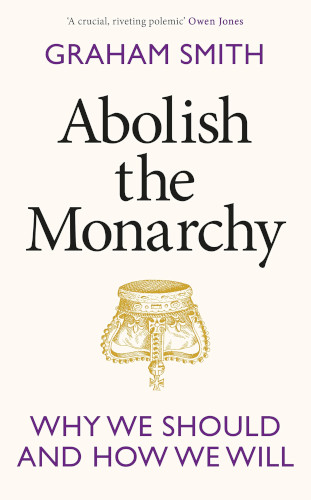In this book, Graham Smith argues that the assumptions that allow monarchy to continue – that it is popular, profitable and does no real harm – are all false.
Beginning with ‘profitable’, Smith tackles royal tourism, patronage and schedules.
Not only is the monarchy not good for tourism (an oft-quoted figure that it generates £500mn a year in tourism revenue has long been debunked), but the royals are also phenomenally expensive, costing taxpayers around £345mn a year.
But even if the monarchy made a profit (which it doesn’t), keeping it for that reason would be immoral, because it is profoundly unaccountable and undemocratic.
‘That is a position from which you could also argue for trading in narcotics, prostitution and even slavery’, notes Smith.
Next, Smith explains the evolution of Britain’s constitutional monarchy; how near-unlimited powers of the crown shifted over to parliamentary control. It’s important information, if a little dry.
Luckily for his readers, Smith’s style is readable, and he breaks down the jargon beautifully.
Then, Smith challenges the assumption that monarchy is harmless. He quotes the Nolan Principles (for standards in public life) and argues convincingly that the royals – who fall well short of them – should at least be held to the same standards as politicians.
Smith goes into the company the royals keep, their hypocrisy, lack of diversity, racism, cash for honours and other royal scandals. This is not to ‘have a pop’, but to make a point, saying it’s unlikely these individuals would be elected. Smith asserts we would ‘never’ elect them, but... Boris Johnson.
Smith also tackles the ‘pure theatre’ that keeps money moving from the people to the crown.
Lands that have been (and duchies that should be) surrendered to the people still generate huge incomes for the Mountbatten-Windsor family, who have tax privileges that are not available to the rest of us. Meanwhile, cuts to public services continue.
‘We do not, as a nation, owe the Mountbatten-Windsor family this opulent lifestyle’, he writes.
It is not until page 144 that Smith mentions prince Andrew in a more-than-passing fashion. It’s important, as the argument for abolition should rest on more than the behaviour, however repulsive, of one individual.
Smith also addresses activists, detailing lessons British campaigners can learn from abroad.
He argues that campaigns must now reach different audiences with the message that monarchy is problematic, republicanism provides a solution, and the issue is important enough to change.
Perhaps Smith will be called a dreamer when folx read that we could ‘put equality and citizenship at the heart of our new constitution’ but that’s a dream worth working for.
His book could be useful in aiding that work; his well-reasoned arguments could win a few hearts and minds.


